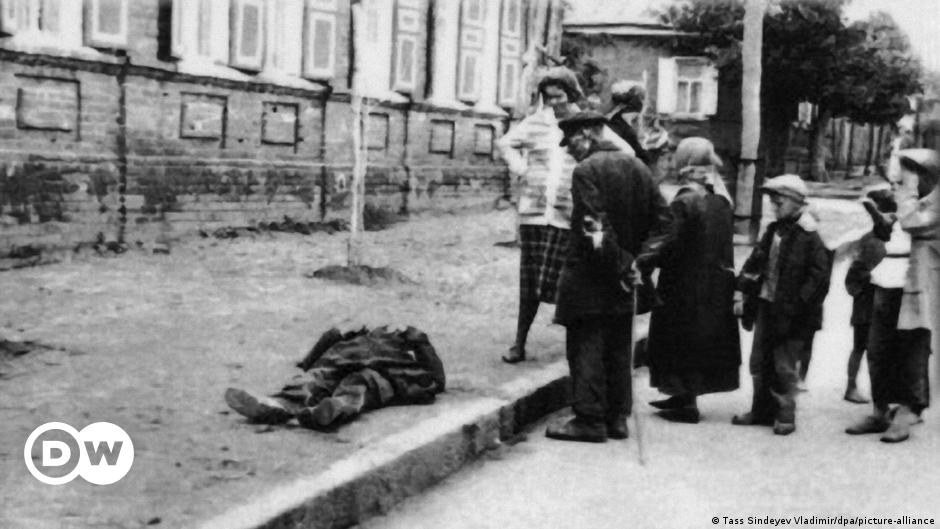- cross-posted to:
- news@beehaw.org
- cross-posted to:
- news@beehaw.org
Most historians don’t consider this a genocide, so this is a purely political move. If Russia hadn’t invaded Ukraine this wouldn’t have happened.
The interesting thing is, the USSR did commit a genocide in Ukraine, the deportation of the Crimean Tatars, but this one isn’t recognised because it’s less known and therefore less politically expedient.
It’s legitimately scary to see how many governments disregard historical analysis to score some cheap “dunking on Russia” points, thereby hollowing out the actual definition of what a genocide is. Like, there are a thousand legitimate ways to condemn Russia, including an actual genocide, so why do this? It’s baffling and frustrating.
I’m not doubting you, but when you say “most historians” what do you mean? I have basically no knowledge of this subject, but I’d like to know more and I know better than to take some random comment at face value.
It’s been a while since I read about this, so I don’t have any sources on hand I can point to right now. The core point is that there isn’t really any proof that the Soviets’ goal was to eliminate Ukrainians as a group, which is the main requirement to classify something as a genocide.
Of course, that doesn’t mean the Holodomor didn’t happen or that the USSR isn’t to blame, only that the intent wasn’t to eradicate a people.
I hope that’s a decent starting point for you to read up on this, in case you’re interested.
The core point is that there isn’t really any proof that the Soviets’ goal was to eliminate Ukrainians as a group
This is, alas, also disputed.
That feels like a really pedantic difference.
Example:
I kill 100% of a population AND my intent was to do that = genocide
I kill 100% of a population BUT my intent was only to kill a lot of people = not genocide???
If that’s really what you’re saying is the discrepancy then I have to disagree with this recognition being purely political. This seems like a common sense thing. The holodomor happened, it was mass purposeful death. We can argue if it was targeted against a people or a location, but the effect was clearly bound to some group or region and it was effective within those boundaries to the extent that it could be considered a genocide.
Without doing any reading on the matter for this topic as well, that’s what I’d say.
There’s also a difference between murder with premeditation, murder without premeditation and manslaughter - all three are the death of someone at someone else’s hands, all three are crimes, but that doesn’t make them the same thing. Intentionality matters in law.
The intent is a crucial aspect of the definition of genocide, which was internationally ratified in the Genocide Convention. Suddenly ignoring that when it’s politically expedient is hugely problematic.
I also want to emphasise that something not being a genocide doesn’t mean it can’t be horrible, a crime against humanity or anything else. It’s not a defence in any way, but a matter of using the correct (legally accepted) name.
Russia has ethnically cleansed like most ethnicities that weren’t Russian. It’s not exactly a leap to say that they saw a famine happening and made it way worse for an easy ethnic cleansing.
It’s true that there is no way to prove what their intentions were, especially since the record keeping of the USSR is basically non-existent, but it seems reasonable that their intent was another ethnic cleansing. From what I have seen from historians the only issue has been that there is no way to prove intent.
I’m not saying it’s a leap - I’m saying that it’s not proven, which would have to be the case for it to be qualified as a genocide.
The Khazakhs and Tartars both were genocided out of southern Russia - once by the Tzar and then the USSR. Russia has a looong history of ethnic cleansing.
Most historians don’t consider this a genocide,
Beg pardon? That the Holodomor was a genocide is a widely, though not universally, accepted view amongst historians.
They were both genocides and should both be recognized as such.
So 100,000 Tatars being killed is a genocide but 10,000,000 Ukrainians isn’t?
The debate is on intent. If the cause was incompetence and bad policy, then it’s not genocide. It is, however, criminal incompetence.
Also, unrelated to the argument, modern figures have it as fewer than 5 million deaths.
Surprised it took so long, but I’m happy it’s being properly recognized for what it was.





